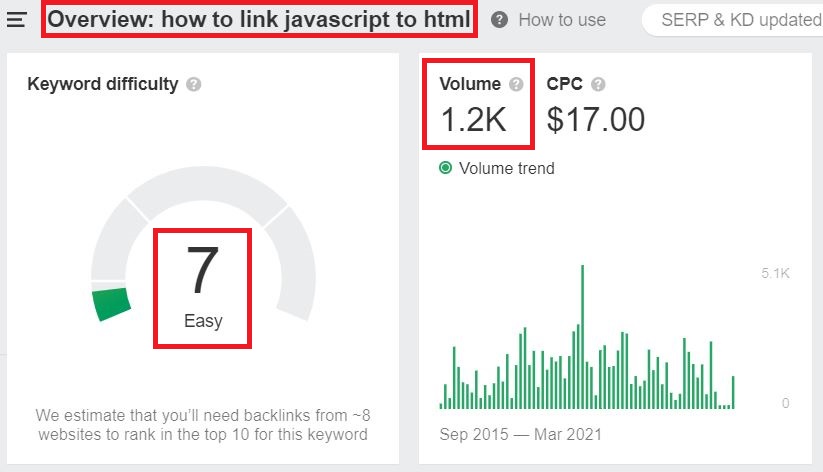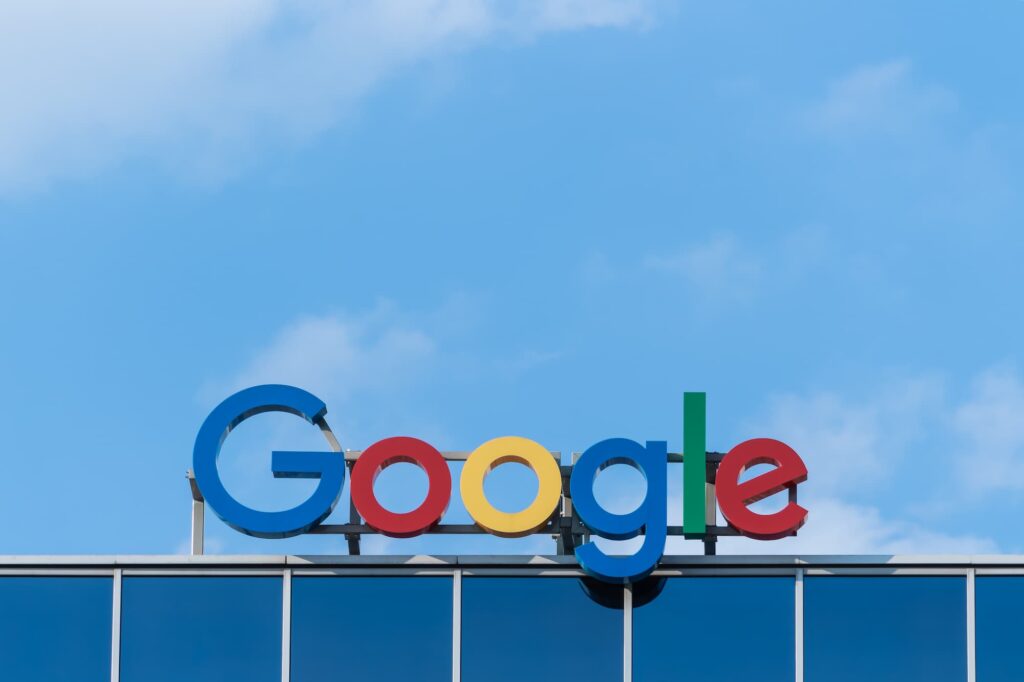First off, let’s get this out in the open, right off the bat.
We Know You Don’t Want To Do Marketing
If you’re the kind of person who has built up a web business and is learning marketing after the fact, this probably wasn’t the part you were initially excited about.
You might even be dreading it.
We did a lot of research prior to launching this course on how our audience felt about marketing. Here are two of the responses we received:
“Marketing and Sales feels scummy”
“It’s like an entire industry of try-hard extroverts persuading people into making decisions they wouldn’t have made otherwise”
Ouch. (“Try-hard?” We have feelings, people!)
But on the other hand, we also received this response:
“I hate that I have to learn marketing but I’m tired of my work just disappearing into the void, with nobody ever finding my website or buying my stuff. I want to make more money, damnit!”
Maybe you’ve already got a project you’ve poured your soul into and you need to get it in front of people.
Maybe you’re an introvert that’s anxious about putting yourself out there. Maybe you believe you’ve got to build a large audience first before uncovering the solution to their problems.
Why You Have To Learn (at Least the Basics of) Marketing
If you’re an entrepreneur and not a marketing person, you’ve pretty much got four options.
- Hire someone to do your marketing for you
- Get a business partner to do it
- Avoid marketing and hope for the best
- Learn marketing
Numbers 1 and 2 both have obvious downsides. You’re either a) not profitable enough to hire a marketer yet or b) not willing to partner with someone and lose control of your business.
Number 3… maybe?
It’s a long shot, but technically possible. You’re pretty much banking that your product is so superior to everything else that people will word-of-mouth you onward to glory.
Be warned — there’s a lot to compete with for people’s attention.
Unfortunately, the only real option is “learn marketing”, which sounds dreadful to a lot of people.
This course is for those kinds of people.
This course is for the kind of human that doesn’t want to sell snake oil or force themselves to become someone they’re not.

This course is for the businesses who thought those Fyre Festival guys were jerks and want nothing to do with people like them.
It is for those that want to help people and make money doing it.
The great thing about SEO in particular is that you don’t have to become a marketing master or salesperson, and you’ll never have to compromise on your values in any way — no manipulation tactics necessary.
You can have your cake and eat it, too.
Why SEO Is the Most Helpful Form of Marketing
SEO is most easily explained as, “the stuff you do in order to show up on the first page of Google searches.”
It is the single form of marketing that’s not about manipulating people, and is genuinely just about helping them.
Why?
Because in order to rank on Google, you need to solve people’s problems. If you don’t solve their problems, you’re not going to rank on Google.
A search engine’s entire purpose is to give its users what they want.
What do their users want when they search? Solutions. Answers. Knowledge.
How does Google provide that?
They sleuth the internet and find the best answers to everything people search for, and then rank them based on how helpful they are.
The more helpful you can be, the more you will be rewarded — helpful to the customer for solving their problems, and helpful to Google by making it clear what to rank you for.
“Hold Up. I’ve already got an opinion on SEO, and it’s not favorable.”
Over the years there has been a lot of criticism about SEO. A lot of it is valid. Your intuition probably isn’t wrong about some of the people you’ll come across in the industry.
There are people who treat the whole thing as a game of how to trick Google. There’s a term for that called “Black Hat SEO”.

Google is always trying to penalize people who aim to trick them.
If they put useless articles at the top of their results, people would trust them less and less. That’s not what they want.
As such, they’re constantly updating their algorithm trying to prevent this from happening.
Trying to go about ranking in any way other than the way *they* want you to is always going to be a race to the bottom. Don’t do it.
Not only is White Hat SEO a goldmine for making money, but you can also sleep easier at night knowing you aren’t being a dirtbag for succeeding in doing it.
You’re contributing to making the internet a better place.
How SEO Works
Essentially… Google is king.
Billions of searches happen on it every month, including searches that YOU would benefit greatly by showing up on its first page.

For example, “how to link javascript to html” gets searched 1,200 times per month, and there’s not a lot of competition for this search (as evidenced by the 7 out of 100 difficulty score above).
If you think you can help solve that problem for someone, SEO is just a matter of writing that guide and putting it out into the world.
If there’s not a lot of competition it means that you’ve got a good chance of ranking on the first page for that search.
Create a useful, helpful, and optimized article for the keyword you want to rank for and you’ll rank.
(Day 4 of this course is all about optimizing)
Why SEO Is So Valuable
Using the 1,200 monthly searches for “how to link javascript to html” example above…
Once you rank, a percentage of those 1,200 searches each month will find the article you wrote, see you as the java expert you are, buy the beginners javascript ebook or course you’ve created, then sign up for your javascript mastermind group.
You’re literally just helping people with their problems and sharing your expertise.
Google wins because you’re helping their platform become as useful as possible. You win because lots of people will come to your site.
More visits to your site means:
- More brand awareness
- More connections on your email list
- More people to see and share your work
- More sales, sponsorships, and advertising opportunities
Write 100 articles that each bring you 1,000 visitors per month, that’s 100,000 eyeballs to your website, every month, ongoing, consistently, and evergreen.
Of those 100,000 eyeballs, if 1% buy your product that’s 1,000 sales per month.
If you’re selling something for $50, and you sell 1,000 of them per month, that’s $50,000 in monthly recurring revenue.
(not even counting what a sponsor would pay to get in front of those 100,000 eyeballs, or the affiliate income you could make by referring products)
Pros of SEO
Here are the pros and cons you really need to know about SEO moving forward.
SEO is Free
Unlike paying for ads, your SEO organic traffic grows with you. The more consistently you write, the more traffic you’ll receive. The only expense is your time.
Ads work for driving traffic, but the instant you stop paying for them, the instant people stop visiting you. Also, the savvier your audience, the less likely they’ll click your ad and go straight for the organic results.
If you know how to optimize your posts, aim to write the most helpful articles you can. No financial investment necessary.
SEO is Consistent
Once you’ve made the climb to Page 1, it means you’ve successfully gotten Google to give you their stamp of approval.
Forever onward, they’re going to keep ranking you there until someone else gives them a reason to bump you (ie. they write a better article).
Aim to create the most useful content for that term and you will be rewarded for it for years to come.
Email newsletters and Social Media are valuable forms of marketing in their own right, but they’re each designed to prioritize fresh new daily content that results in traffic spikes that eventually fade to nothing.
If you’re relying on social media or email, your website’s traffic will be spike after spike after spike, rather than steady, ongoing, and passive.
Search traffic is the result of actual, real worldwide users looking for information and typically remains consistent.
So long as people are using Google to solve their problems, your articles will remain at the top, capturing their attention forever onward.
SEO is Replicable
The most exciting thing about SEO is that there are no secrets.
You’re not trying to trick Google, you’re literally just giving them what they want. Aim to be helpful and optimize accordingly. Wash, rinse, and repeat.
What other investment is so clear-cut? There’s literally a blueprint and a formula to follow of “If you just do this, and keep doing it, you’ll be rewarded.”
SEO is Future Proof
Remember how prevalent Myspace was? Or how 10 years ago all your peers were really active on Facebook?
It’s nightmarish to imagine investing your entire business strategy into social media platforms that come and go.
Beyond the risks of potentially upsetting the platform’s overlords, what happens if that platform dies off eventually and you’ve put all your eggs in that one basket?
Investing in your organic web presence means that as long as Google is important, so is your business. You remain in total control of your success.
SEO Can Make You a Lot of Money
“There are over 70,000 Google searches each second. That’s almost 227 million an hour and about 5.4 billion Google searches per day.”
Everyone wants their business to get discovered, and SEO is the best way to do it.
When the world is as big as it is, and 92% of it is using Google — there is a clear correlation between investing in content and monthly revenue.

This baking blog brings in $903,000 in monthly traffic value from advertisers.
This isn’t even factoring in the amount they’re presumably receiving from sponsored posts, product sales, or affiliate income.
SEO Can *SAVE* You a Lot of Money
SEO is a front-loaded marketing investment, but once you’ve got the traffic, you can drastically reduce your marketing budget in the long term.
Companies are often scared at the thought of investing 6-12 months of work without seeing an immediate return on investment.
If you stick with it, 5 years down the road, how much do you think sites with that kind of organic traffic (above) really need to keep investing in their marketing team?
If this is a personal project, you might even just retire and live off the passive income.
Cons of SEO
It Requires Consistency
It’s easy to get starry-eyed and excited to imagine yourself writing some articles and waking up to $903,000 a month in recurring revenue.
But it takes time. And consistency. And quality.
Some of the biggest SEO agencies tell their clients before working with them, “to hire us, you will have to be comfortable spending $50,000 and not seeing a return on investment for 6-12 months”.
The most important thing an SEO has to do is set reasonable expectations.
It’s Not A Guarantee
Yes, it’s formulaic and uncomplicated, but it’s not a guarantee that you’re going to succeed on 100% of the things you try for.
Maybe your keyword research convinced you to target a specific keyword but misunderstood the search intent that Google was looking for.
Maybe you finally get to rank #1, and someone like Buzzfeed or the New York Times with a huge presence decides to write an article covering the exact same topic and just completely dominates you.
Advice:
Always keep YOUR audience in mind. Even if a competitor writes the same thing you do, there is no one else who can speak to your audience better than you can.
There Are a Lot of Factors in Ranking
The purpose of this course is the 20% of SEO that sites in most niches truly need. It’s NOT a complete comprehensive A-Z master’s course of everything a professional SEO knows.
The remaining 4 lessons will get you from zero to intermediate. You’ll know more than the average content creator about how to rank, and more than most people you’ll ever meet outside of a marketing department.
Remember, most of the people creating for the internet don’t know this.
Don’t be overwhelmed if it feels foreign to you.
What we’ll teach you throughout the next four days should give you a huge advantage moving forward.
Next Lesson: Learn why Google ranks the way it does, and how you can use it to your advantage. See you tomorrow 🙂
